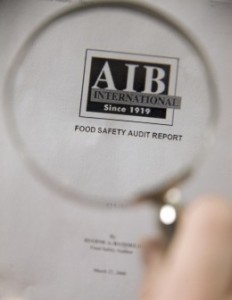The editorial board of The Des Moines Register writes that if there’s one lesson to be learned from the 2010 salmonella outbreak that originated in Iowa and sickened thousands of consumers nationwide, it’s the high cost of failing to properly regulate egg  production.
production.
Maybe.
But what constitutes proper regulation?
What constitutes proper audits and inspections?
How can consumers choose?
Jack and Peter DeCoster, who were criminally charged for the way they ran the Quality Egg operation in Iowa, were bad actors, as the Iowa egg industry now admits. But what sort of regulatory system do we have that allows scofflaws to not only flourish but also become some of the industry’s biggest players?
That’s a question our governor and state legislators have steadfastly, and very deliberately, refused to address. Still, it has to be asked, particularly in light of the recent revelations that the Iowa Department of Agriculture and Land Stewardship indefinitely suspended its inspection of egg production facilities last year to eliminate any risk of inspectors spreading the bird flu virus.
After the 2010 salmonella outbreak and shortly before leaving office, Iowa Gov. Chet Culver proposed a series of reforms aimed at addressing five vulnerabilities in Iowa’s egg production regulations. None have been acted upon by the Branstad administration.
Among the proposed reforms:
More stringent state oversight of the smaller egg farms — those with fewer than 3,000 laying hens — that are exempt from federal regulations.
 State-mandated reporting, by both testing laboratories and egg producers, of positive tests for salmonella enteritidis.
State-mandated reporting, by both testing laboratories and egg producers, of positive tests for salmonella enteritidis.
Accreditation and certification standards for laboratories that perform testing for salmonella.
Creation of a state-mandated salmonella detection and prevention program, with minimum training and competency standards for the staff.
Creation of a new funding stream to support the implementation of a comprehensive, statewide egg-safety program.
But that’s not enough.
Consumers and their pocketbooks will drive food safety innovation and accountability at retail.
Market food safety at retail so consumers can choose.
Audits and inspections are never enough: A critique to enhance food safety
30.aug.12
Food Control
D.A. Powell, S. Erdozain, C. Dodd, R. Costa, K. Morley, B.J. Chapman
http://www.sciencedirect.com/science/article/pii/S0956713512004409?v=s5
Abstract
Internal and external food safety audits are conducted to assess the safety and quality of food including on-farm production, manufacturing practices, sanitation, and hygiene. Some auditors are direct stakeholders that are employed by food establishments to conduct internal audits, while other auditors may represent the interests of a second-party purchaser or a third-party auditing agency. Some buyers conduct their own audits or additional testing, while some buyers trust the results of third-party audits or inspections. Third-party auditors, however, use various food safety audit standards and most do not have a vested interest in the products being sold. Audits are conducted under a proprietary standard, while food safety inspections are generally conducted within a legal framework. There have been many foodborne illness outbreaks linked to food processors that have passed third-party audits and inspections, raising questions about the utility of both. Supporters argue third-party audits are a way to ensure food safety in an era of dwindling economic resources. Critics contend that while external audits and inspections can be a valuable tool to help ensure safe food, such activities represent only a snapshot in time. This paper identifies limitations of food safety inspections and audits and provides recommendations for strengthening the system, based on developing a strong food safety culture, including risk-based verification steps, throughout the food safety system.
